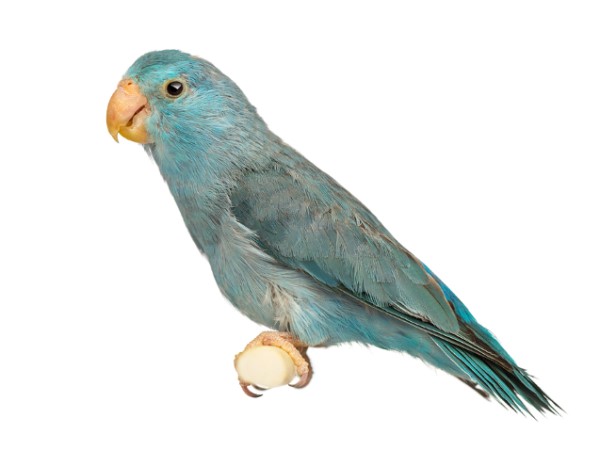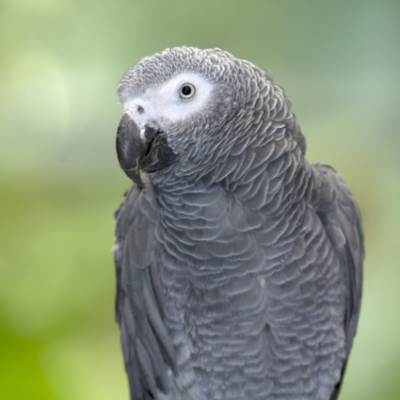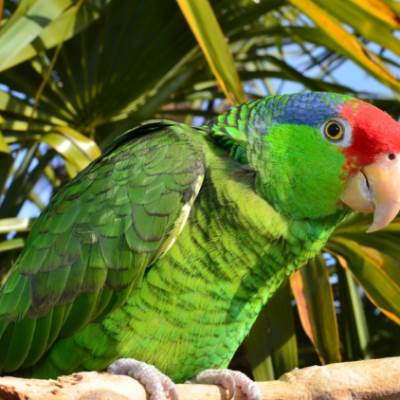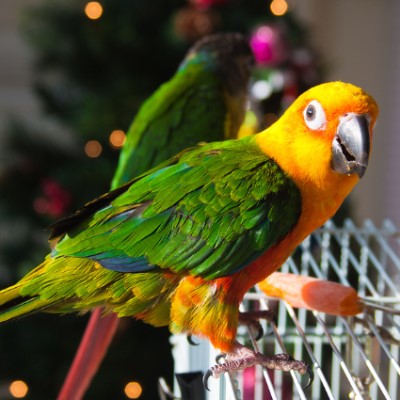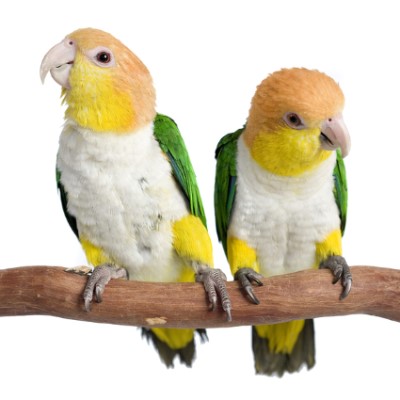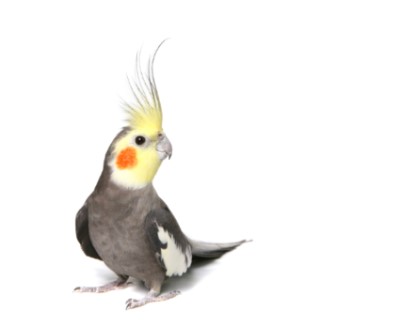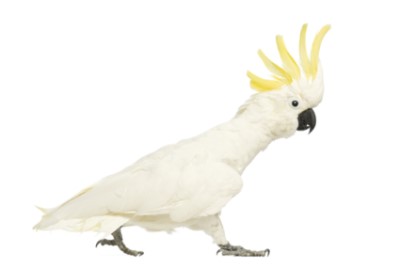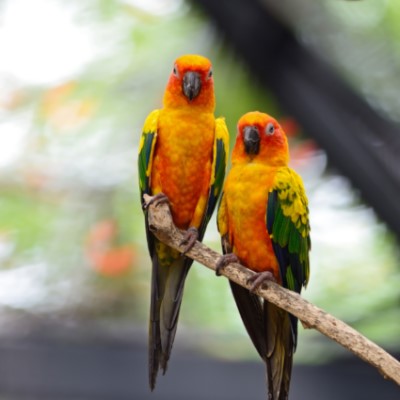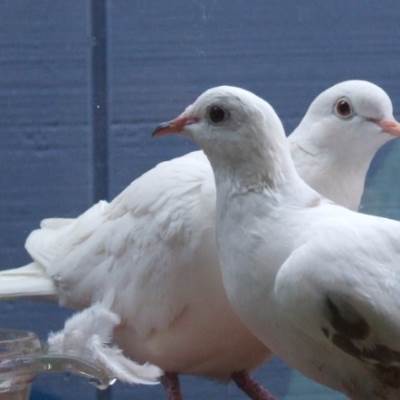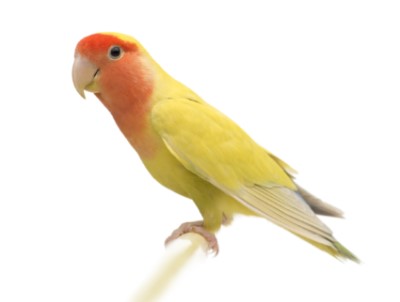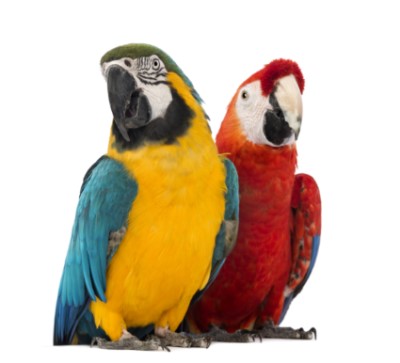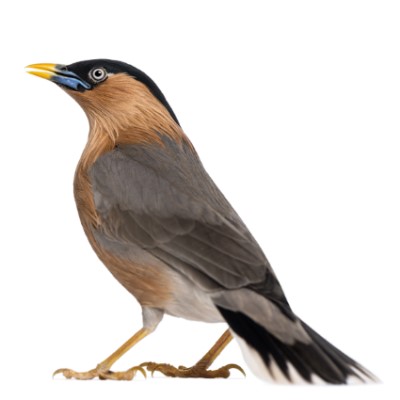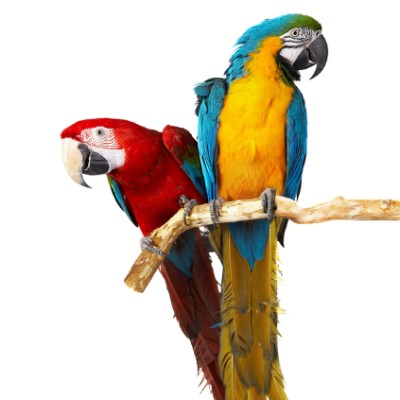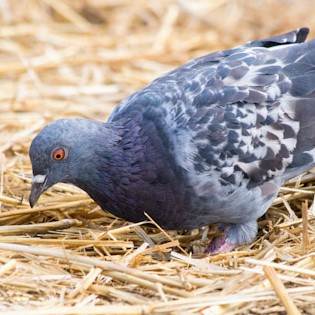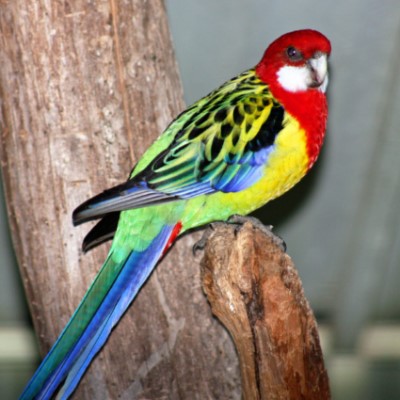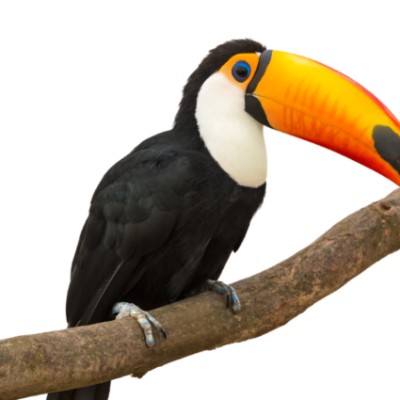There are seventeen species of the parrotlet (with even more subspecies), but only three parrotlets are normally sought after as pets in the United States:
Pacific or Celestial Parrotlet—most popular parrotlet
Green Rumped Parrotlet—considered the most gentle
Mexican Parrotlet—a larger parrotlet at 5 ½ inches
Common Reasons for Surrender
The primary reason the parrotlet is surrendered is because this species tends to be mean and quick to bite.
Pros
The parrotlet is smart, entertaining, and curious. If you can keep your bird out of mischief, she will delight you and your friends with her comical, bubbly personality. If hand-fed and tamed, the parrotlet will be an affectionate companion.
Cons
The parrotlet can be territorial and will nip if moody or displeased for some reason. She does not interact well with other birds and tends to be aggressive toward them, even if the birds are five times larger.
Diet
The parrotlet enjoys pellets, seed, vegetables (without salt) and fruits. Provide a cuttlebone in the cage for calcium. As with any bird, be sure to place water and food dishes high enough so that they do not fill with bird droppings and become “bacteria soup.” Although the parrotlet is small, she has high energy and will eat as much as a parrot three times her size. As with all parrots, do not feed alcohol, chocolate, caffeine, or avocados as they are dangerous and sometimes fatal foods.
Exercise
There should be a place in your home that is safe for your birds to be taken to exercise one to two hours per day. The parrotlet is active and mischievous. If you provide a lot of toys and perches, your bird will be able to stretch his wings and satisfy his curiosity.
Possible Health Issues
Avian veterinarians say that the parrotlet gets interbred and therefore this species sees a lot of tumors and gout.
Housing
The parrotlet is both quieter and smaller than other parrot species and can be housed in an apartment or condominium.
This tiny parrot has a lot of energy and will need a cage at least 18 x 18 x 18 inches. Horizontal bars are handy for climbing and should be spaced ½ inch or less. Be sure to set up perches of different sizes from 3/8 to ½ inch in diameter for the bird’s better foot care. Perches made of wood, cement, or sand are helpful, but do not wrap sandpaper around the perch.
Grooming
Keep the parrotlet’s wings clipped for her own safety. Her nails and beak may need trimming as well. Watch an avian vet groom your birds wings, nails, and beak before attempting to groom her yourself. The Parrotlet will enjoy bathing in a shallow bowl of water. Click here to watch a parrotlet bathing.
Training
The parrotlet is like a little cousin to the Amazon and you can train the parrotlet similar to the way you would train an Amazon. They will do well if handled daily.
Entertainment
Parrotlets are quite innovative if you provide them with a variety of hard durable toys and interchange them now and then. If you don’t provide toys, they will probably entertain themselves with some of your things.
ADDITIONAL RESOURCES
International Parrlotlet Society
International Parrotlet Society
PO Box 2446
Aptos, CA 95003-2446
831/688-556
We want to thank the Exotic Bird Hospital in Jacksonville, Florida; Avian Rescue Corporation (ARC), Concord, California; and Feathered Friends Forever, Harlem, Georgia, for help with this profile.
